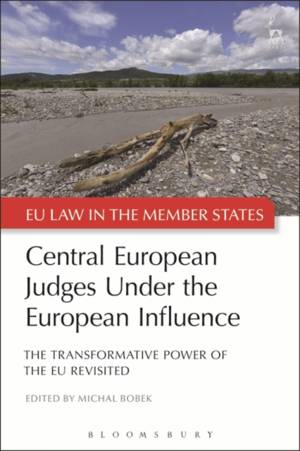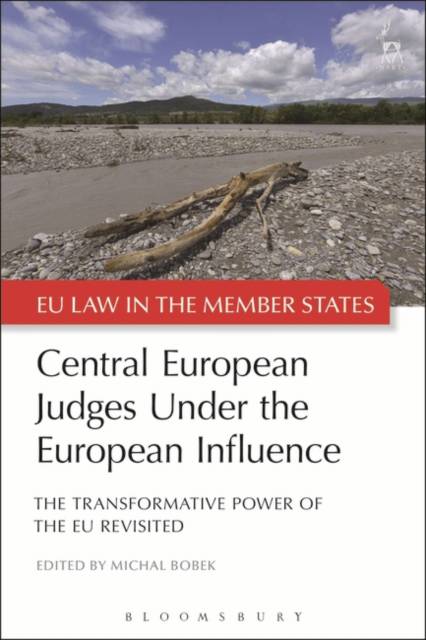
- Afhalen na 1 uur in een winkel met voorraad
- Gratis thuislevering in België vanaf € 30
- Ruim aanbod met 7 miljoen producten
- Afhalen na 1 uur in een winkel met voorraad
- Gratis thuislevering in België vanaf € 30
- Ruim aanbod met 7 miljoen producten
Zoeken
Central European Judges Under the European Influence
The Transformative Power of the EU Revisited
€ 228,95
+ 457 punten
Omschrijving
The onset of the 2004 EU enlargement witnessed a number of predictions being made about the approaches, capacity and ability of Central European judges who were soon to join the Union. Optimistic voices, foreshadowing the deep transformative power that Europe was bound to exercise with respect to the judicial mentality and practice in the new Member States, were intertwined with gloomy pictures of post-Communist limited formalism and mechanical jurisprudence that could not be reformed, which were likely to undermine the very foundations of mutual trust and recognition the judicial system of the Union is built upon.
Ten years later, this volume revisits these predictions and critically assesses the evolution of Central European judicial mentality, institutions and constitutionality under the influence of the EU membership. Comparatively evaluating the situation in a number of Central European Member States in their socio-legal contexts, notably Poland, the Czech Republic, Slovakia, Hungary, Slovenia, Bulgaria and Romania, the volume offers unique insights into the process of (non) Europeanisation of national legal systems and cultures.
Ten years later, this volume revisits these predictions and critically assesses the evolution of Central European judicial mentality, institutions and constitutionality under the influence of the EU membership. Comparatively evaluating the situation in a number of Central European Member States in their socio-legal contexts, notably Poland, the Czech Republic, Slovakia, Hungary, Slovenia, Bulgaria and Romania, the volume offers unique insights into the process of (non) Europeanisation of national legal systems and cultures.
Specificaties
Betrokkenen
- Uitgeverij:
Inhoud
- Aantal bladzijden:
- 464
- Taal:
- Engels
- Reeks:
- Reeksnummer:
- nr. 2
Eigenschappen
- Productcode (EAN):
- 9781849467742
- Verschijningsdatum:
- 24/09/2015
- Uitvoering:
- Hardcover
- Formaat:
- Genaaid
- Afmetingen:
- 157 mm x 236 mm
- Gewicht:
- 861 g

Alleen bij Standaard Boekhandel
+ 457 punten op je klantenkaart van Standaard Boekhandel
Beoordelingen
We publiceren alleen reviews die voldoen aan de voorwaarden voor reviews. Bekijk onze voorwaarden voor reviews.






